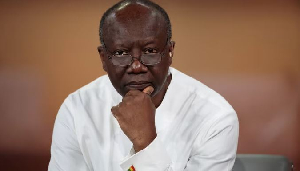The Centre for Policy Analysis (CEPA) wants a tightening of the country’s macro-economic policy in the last quarter of this year in order to save 2013 and 2014 from the harshness of the stabilization experiences of 2009 and 2010.
In its mid-term report on the assessment of the completion of government’s three-year stabilization programme and supplementary budget, the Centre said stronger coordination and greater complementarity between fiscal and monetary policy, as well as strengthening of information sharing and communication with the public was needed to make this happen.
“CEPA is in agreement with International Monetary Fund (IMF) that the Bank of Ghana (BoG) and the Ministry of Finance & Economic Planning must work together to improve the functioning of the domestic bonds and foreign exchange markets.”
To reduce volatility and ensure convergence of exchange rates in the markets, it advocated “the strengthening of the structures of oversight, particularly banking supervision and regulation for stricter enforcement of rules and the insistence on compliance while at the same time seeking greater cooperation from the commercial banks.”
It noted that “the endorsement of the 2012 economic programme of the government and the disbursements of some $178.74 million together with the renewed commitment to fiscal discipline and monetary tightening have boosted market confidence, with the cedi experiencing a trend reversal in fortunes from depreciation to appreciation.”
According to the recent report, the favorable developments in the external sector helped to mask the potential adverse consequences of loose monetary conditions at the turn of the year.
“CEPA analysis suggests that with the discovery of oil and entry into the oil era, the equilibrium real effective exchange rate had appreciated. Thus, while there has been a tendency for the real effective exchange rate (REER) to appreciate, this has been mild and consistent with the economic fundamentals,” it said.
Further explaining developments that sparked inflation at the beginning of the year, it mentioned that the withdrawal of energy subsidies in December unanchored inflationary expectations. This was boosted by the sharp rise in domestic aggregate demand pressures of the political business cycle of election year 2012 and in the context of a liquidity overhang, sparked up a self-fulfilling speculative attack on the cedi.
“The resort to foreign exchange market operations (FEMO) rather than open market operations (OMO), the more appropriate in the circumstance, provided only temporary relief and resulted in exchange rate overshoot and misalignment.”
Business News of Tuesday, 4 September 2012
Source: Daily Guide












